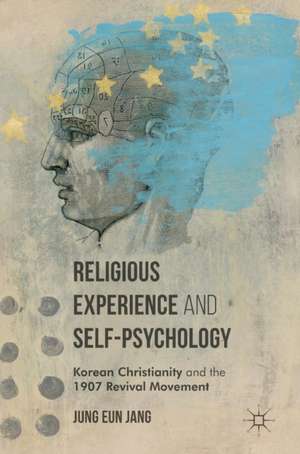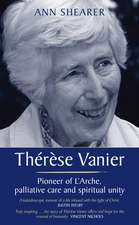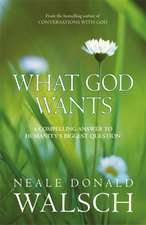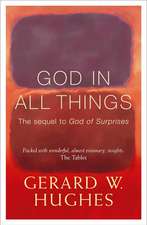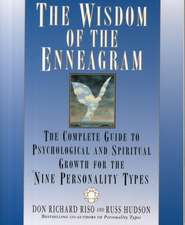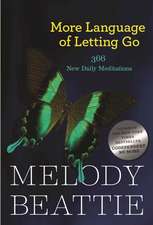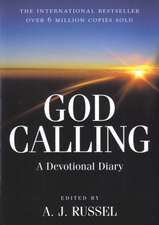Religious Experience and Self-Psychology: Korean Christianity and the 1907 Revival Movement
Autor Jung Eun Jangen Limba Engleză Hardback – 9 noi 2016
This book explores the 1907 Korean Revival Movement from a self psychological perspective. The examination of the psychological processes in the movement based on Heinz Kohut's self psychology can shed light on religious experiences as selfobject experiences by identifying the sense of defeatedness and helplessness that Korean people experienced under Japanese occupation as what Kohut calls self-fragmentation of the Korean group self and explaining its therapeutic functions which facilitate potential for the narcissistic nourishment of the fragmented group self leading to renewed self-esteem, transformation, and empowerment of the Korean people. Korean people in the early 1900s experienced abuses and oppression by corrupt officials and exploitation by Japanese government. Through religious experiences which emphasized the individual repentance, the experience of God through the spirit, emphasis on prayer, and eschatological faith, the Korean Revival Movement in 1907 enabled its followers to experience mirroring and idealizing selfobjects which function as a role of transforming the lower shape of narcissism into the higher one.
| Toate formatele și edițiile | Preț | Express |
|---|---|---|
| Paperback (1) | 381.00 lei 6-8 săpt. | |
| Palgrave Macmillan US – 21 apr 2018 | 381.00 lei 6-8 săpt. | |
| Hardback (1) | 385.84 lei 6-8 săpt. | |
| Palgrave Macmillan US – 9 noi 2016 | 385.84 lei 6-8 săpt. |
Preț: 385.84 lei
Nou
Puncte Express: 579
Preț estimativ în valută:
73.83€ • 80.45$ • 62.21£
73.83€ • 80.45$ • 62.21£
Carte tipărită la comandă
Livrare economică 23 aprilie-07 mai
Preluare comenzi: 021 569.72.76
Specificații
ISBN-13: 9781349950409
ISBN-10: 1349950408
Pagini: 203
Ilustrații: IX, 193 p.
Dimensiuni: 148 x 210 x 17 mm
Greutate: 0.36 kg
Ediția:1st ed. 2016
Editura: Palgrave Macmillan US
Colecția Palgrave Macmillan
Locul publicării:New York, United States
ISBN-10: 1349950408
Pagini: 203
Ilustrații: IX, 193 p.
Dimensiuni: 148 x 210 x 17 mm
Greutate: 0.36 kg
Ediția:1st ed. 2016
Editura: Palgrave Macmillan US
Colecția Palgrave Macmillan
Locul publicării:New York, United States
Cuprins
Psychological Analysis of the 1907 Revival Movement .- Kohut’s Self Psychology: Selfobject and Selfobject Experiences .- The Korean Group Self and the Joseon Dynasty .- The Selfobject Functions of the 1907 Revival Movement .- Korean Christianity and the Korean Groups Self .- Conclusion: Sublimation, Oceanic Feeling, and the Selfobject.
Notă biografică
Jung Eun Jang is Assistant Professor at Ewha Womans University, South Korea, who is teaching pastoral care and counseling in the department of Christian Studies. He is an ordained pastor of the Korean Presbyterian Church, as well as a Nationally Certified Psychoanalyst(NCPsyA), certified by NAAP (National Association for the Advancement of Psychoanalysis).
Textul de pe ultima copertă
This book explores the 1907 Korean Revival Movement from a self psychological perspective. The examination of the psychological processes in the movement based on Heinz Kohut's self psychology can shed light on religious experiences as selfobject experiences by identifying the sense of defeatedness and helplessness that Korean people experienced under Japanese occupation as what Kohut calls self-fragmentation of the Korean group self and explaining its therapeutic functions which facilitate potential for the narcissistic nourishment of the fragmented group self leading to renewed self-esteem, transformation, and empowerment of the Korean people. Korean people in the early 1900s experienced abuses and oppression by corrupt officials and exploitation by Japanese government. Through religious experiences which emphasized the individual repentance, the experience of God through the spirit, emphasis on prayer, and eschatological faith, the Korean Revival Movement in 1907 enabled its followers to experience mirroring and idealizing selfobjects which function as a role of transforming the lower shape of narcissism into the higher one.
Caracteristici
Carefully examines human religious conduct in the 1907 Korean Revival Movement by accounting for the emotional origin and psychological motivation Explains how religious experiences and theological idea of the Movement fortified the psychological health of the Korean people Examines the emotional origin of the religious behavior and experiences with the context of a historical event
